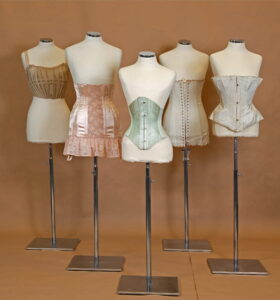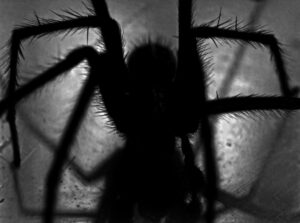Tag: Elizabeth McGinn ’21
Tangents and Tirades
by kwheele4 on March 18, 2021
Tangents
Dr. Seuss Ban: Racism Has No Place in Children’s Literature
A couple weeks ago, Dr. Seuss’s estate decided to pull six of the late writer’s books from stores, citing concerns with their racist imagery. The move ignited a firestorm of backlash, with some saying the decision is an example of “cancel culture.”
While some aspects of cancel culture can be concerning, the removal of children’s books featuring racist caricatures is not.
The audience of Dr. Seuss’s books are young, impressionable children who experience the complexities of society through forms of media. By continuing to read books with outdated stereotypes, children are taught implicit biases that become reinforced as they grow older, thus continuing the cycle of racism.
This is not to say that all books featuring racism should be banned—for example, learning about the Adventures of Huckleberry Finn in high school with a dialogue about the history of racism and its current state in our society is crucial to education.
The banning has also been compared to Cardi B’s song “WAP,” which includes sexually explicit lyrics and celebrates sexuality; if kid’s books are banned, why is this song popular on streaming platforms?
This argument compares apples to oranges. “WAP” is a song written by adults for other adults, whereas Dr. Seuss books are written for the consumption and enjoyment of young children—the intended audience of media and its potential ramifications of said media’s content separates these two works.
It is the unique audience of children’s books that makes the Dr. Seuss estate’s decision so critical. Disney has made similar moves in light of this issue, pulling movies like Song of the South from its streaming platform.
While banning racist images from books will not end racism, it is a first step in raising the next generation to have open minds, free from racial biases. If cancel culture enables the erasure of implicit biases from children’s learning, we should welcome it.
—Elizabeth McGinn ’21
De-Cluttering Your Mind and Your Space
With midterms fast approaching, college students have a lot of stress on their minds.
There are many ways to deal with this stress, such as taking a walk, watching a movie, or practicing meditation. However, a lot of these activities seem too time-consuming for busy students who want a quick break before getting back to their work.
College students should use cleaning as a de-stressor because it is a quick and easy way to clear one’s mind and physical space.
One technique to cleaning that has circulated around social media is the “five-minute” rule. Whenever you need a break, you take five minutes to pick up or neaten anything that is cluttering your physical space. College students should use this technique to take a step away from work for just five minutes.
A clean space also helps you to be more productive because when your work and your notes are organized, so is your mind.
“I like to have all of my notes and books laid out neatly on my desk. It helps me to stay focused and be productive,” Maddie Guth ’22 said.
There are a lot of great ways to take a break from schoolwork and studying. But cleaning, or using the five-minute rule, is the most effective way to step away and come back even more productive.
—Emily Ball ’22
The Return of the Corset: How a Fashion Trend Represents a Step Backwards in Women’s Equality
by kwheele4 on February 25, 2021
Opinion

Trigger Warning: This piece discusses eating disorders.
By Elizabeth McGinn ’21
Opinion Guest Writer
A quick browse through any social media platform reveals today’s current trends, including baggy pants, middle-parted hair, and feathered eyebrows. However, one concerning trend is making a comeback from an infamous and symbolic garment in women’s fashion—the corset.
From Victoria’s Secret to TikTok and Instagram, young women have been sporting an item that their forebearers fought to free them from. The corset had been painted by early-wave feminism as the epitome of women’s oppression, as women were forced to wear clothing that restricted their mobility and breathing while upholding standards of femininity based upon thinness.
So, why are women wearing corsets again in 2021?
Some merely like the aesthetic; others find it sexually liberating. The bondage community has wholeheartedly embraced the corset, adding a nuance of sexuality to corsets today. This connotation, in conjunction with its history, makes the corset a symbolic hotbed.
Modern day corsets are typically much less physically restrictive than historical ones. In the late 1800s, doctors studied the health effects of corsets, finding common problems such as fainting, back problems, and restricted movement of the internal organs. When it fell out of style in the 1920s—thanks to the influence of women’s right’s movements—women could literally and figuratively take a breather.
While the majority of modern corsets do not carry the same physical dangers as historical ones, many are bought and worn in an effort to “waist train.” This corresponds more to the original purpose of corsets; waist training is an attempt to secure a slimmer figure through the restrictiveness of corsets. The increasing popularity of shapewear, similar in purpose to a waist trainer or corset, attests to the importance of women’s body shapes in fashion.
Although many women wear corsets merely for aesthetic purposes, the phenomenon of waist training is indicative of a much more pervasive issue in women’s fashion: the obsession with thinness.
While Lizzo and other celebrities attempt to promote body positivity, the norm among celebrities and within the fashion industry is extreme, waiflike thinness. Just last week, Kendall Jenner posted a mirror selfie that went viral for her tiny figure, with many commenters yearning for a body like hers or stating that they would not eat for the rest of the day.
The expectations of looking like Kendall Jenner or other models or influencers promote toxic behavior. With social media creating a mirage of a perfect life and perfect body, without acknowledging filters or photoshop, normal and healthy women may resort to unsafe measures to achieve the unattainable.
A slew of consequences occur from this impossible quest, including the rise of eating disorders in all genders and the emergence of a $60-billion-a-year diet industry. To put it shortly, businesses profit off women’s insecurities.
Because of society’s obsession with thinness, corsets are dangerous. Their original purpose was to mold the female body into a more slender shape, and while not all attempt to distort the body, waist trainers are becoming more and more popular. Even nearly a century after feminists fought for the rights of women to vote and wear pants, society still places immense pressure on women to look a certain way.
When the fashion industry actually commits itself to body positivity and celebrates all body types and shapes, perhaps then corsets can be reclaimed as something that is empowering instead of restrictive. Until then, corsets are a painful reminder of how oppressive women’s fashion has been—and will likely continue to be.
Christmas on 30 Laurie Lane
by The Cowl Editor on December 7, 2019
Christmas

by Elizabeth McGinn ’21
Snow-roofed colonial revivals, nearly identical except for the colors; candles aglow in each window, welcoming wreaths on the door, twinkling lights hidden in the shrubbery. Walk inside any and there’s a familiar scene; a family gathered around the tree, plaid or snowman pajamas and fuzzy socks, hot chocolate—Peppermint Schnapps for the parents. Classic suburban New England Christmas.
But inside 30 is mine; brother, mother, and father. Only Mother knows what treasures lay underneath the tree. She smiles knowingly. For her, the joy is witnessing the unwrapping, seeing the excited expressions; she listened and found the perfect presents. Brother, older but none the wiser, aches to reach under the tree first; he rips apart the painstakingly wrapped paper while we watch. Grinning to his ears, he unveils exactly what he wanted. Father sips unsweetened coffee on the old cedar chair that does not match the sofa. Though the gifts surprise him too, he takes pride in how hard he works for his family, making this all possible. And me—I wait my turn, warmed by the fireplace and the kind of love that radiates on Christmas Day.
On a Train
by The Cowl Editor on November 15, 2019
Poetry
by Elizabeth McGinn ’21
Flashes whirling past, face pressed against the glass,
eyes adjust to a moving landscape from a train.
A glimpse at strange moments as we pass,
waving adieu to the lonely buildings that remain.
Littered with flecks of dust and drops of rain,
the plexiglass portal offers rare sights
to me, the voyeur: industrial sites
and crowded subway lines, a city block
of crumbling tenements, a vacant landfill,
a seaport; fishermen socializing on the dock,
coat-cloaked city dwellers fighting fall chill,
and a dilapidated, olden windmill.
Losing track of time watching the mundane,
spying the lives that aren’t mine on a train.

Ghost Poems
by The Cowl Editor on November 1, 2019
Halloween

Does Fear Disappear?
By Sean Tobin ’20
Does fear disappear
If Stephen King writes it down
And Hitchcock films it?
Or does fear instead
Creep, crawl, and hide deeper down
Where you cannot reach?
The Wind
Sarah Heavren ’21
The wind whips and wails
Shaking the walls
Rattling the trees
Making leaves fall.
It groans and stings
With such distress
Like a poor soul
That’s not at rest.
Darkness Surrounds
by Grace O’Connor 22
I opened my eyes to see darkness surrounding me
I slowly stood up as my head throbbed
The room smelled musty and the darkness weighed down on me
The floor creaked below me as I cautiously took a step forward
I stopped quickly to calm my racing heart
I heard steps but could not tell from which direction
I paused, panicked and paranoid
In that moment I couldn’t breathe
It all happened in a second
Standing over me, it was the last thing I ever saw
As the true darkness swept over me
Phantom
by Connor Zimmerman ’20, Elizabeth McGinn ’21, and Sarah Kirchner ’21
I looked around the corner;
Phantom eyes staring back at me.
A haunting chill went down my spine:
Frosty breath, sweaty palms, fight or flight kicking in.
Reaching out to touch the specter,
As my hand went through, my body went cold.
My hand darted back; bumps began to envelop my skin.
Vapors dissipating from where it once stood.
Fear swallows me. Suddenly, I stand alone.
Fast Fiction: What Scares You the Most?
by The Cowl Editor on November 1, 2019
Features

In 14 words or less “What Scares You the Most?” Go!
An email comes from the Bursar’s Office: tuition due by the first.
by Daniel Carrero ’23
The shower upstairs turns on, but I thought I was home alone…
by Sam Pellman ’20
Spider—crawls away, out of sight…lurks still in mind.
by Sarah McLaughlin ’23
To die alone and unloved.
by Elizabeth McGinn ’21
At night, you’re home alone. The power goes out. You hear a voice.
by Sarah Kirchner ’21
Neither graveyards, nor goblins, not even ghouls. Just my midterm grades from this school.
by Connor Zimmerman ’20
Two Writers, One Line: “I walked into the house and that’s when I saw it”
by The Cowl Editor on October 10, 2019
Features
Two Writers, One Line: “I walked into the house and that’s when I saw it.”
Electrifying But Calm
by Grace O’Connor ’22
I walked into the house and that’s when I saw it
Her long, red dress sunk down to the floor
The shiny, chocolate brown hair of hers poured down her back
Her hands were pressed up against the window sill
I felt my heart pound in my eardrum with every step
Her head wouldn’t turn toward me as if I wasn’t there
A knife could cut through the silence that weighed in the air
I searched for words that seemed to fade into an abyss
Her head turned slowly and I stopped abruptly
Her blue eyes were electrifying but calm
Her face was emotionless but at ease
My mind went blank as if she was controlling my every thought
I never thought this moment would come
A moment filled with so much hope but confusion
I had so many questions but in her presence I was satisfied
Her presence seemed real but not possible
I did not realize until that moment how much I missed her
I reached out my hand but she didn’t move
My heart continually pounding
My mind racing through the darkness and doubt
She approached me slowly and put her hand on my face
She smiled slightly and I could see comfort in her eyes
She stepped back and examined me
I felt happy in her presence and wanted that joy to last
She turned and walked toward the door
I did not chase after her, I just let her keep walking
I knew that was it and did not feel sad
Seeing her once more was all I needed
Infinity Killer
By Elizabeth McGinn ’21
I walked into the house and that’s when I saw it. Dismembered limbs arranged neatly in the form of the infinity sign. This has to be impossible.
As I inched closer to inspect the body — or bodies — the stench of rotten flesh crawled up my nostrils. The limbs making the figure consisted of three arms, chopped off haphazardly at the shoulder so the joint of the arm protruded from the tissue, and a singular leg, foot, calf, thigh and all. Not again.
I stared at it, for who knows how long, until I felt a gentle nudge at my elbow.
“Callahan,” Ramirez, my partner said, “Do you think this could be a copycat?” His eyes darted between me and the bodies, unsure of where to rest their gaze.
After a pause, I hesitantly responded, “The public doesn’t know this level of detail. So if it is a copycat, it’s someone on the case.”
Ramirez nodded, exhaled sharply, and dejectedly asked, “I thought we were done with this crap.”
Me too.
…
“Detective Callahan,” the pushy reporter shoved her microphone in my face, “Will the Infinity Killer get the death penalty for his crimes?”
“No comment,” I said as I pushed away the microphone, and started to walk up the steps of the courthouse, away from the throng of reporters and curious bystanders.
We had been searching for this bastard for months. He never left any fingerprints or DNA, and the circumstantial evidence for most of our suspects was never enough for a warrant, let alone a charge and conviction.
We finally captured him through a single strand of hair left at one of the crime scenes. Luckily, our guy was a convicted sex offender in our system. Easy as pie to find him and arrest him. All that is left is to convict him.
Waiting for the formalities of the court to pass before I testify, I can’t help but look at him. Grimy hair and gaunt face, he looked like he spent months underground before emerging from his chrysalis. He never lifted his eyes to anyone, not to the judge or even his own attorney. He just sat there like a statue, blank and expressionless.
“Detective Callahan, please rise,” the judge ordered me to the stand. I swore in, and was ready to help get this psycho locked away forever.
“Detective Callahan, can you describe the first crime scene for me?” the prosecutor demanded.
I went over every minute detail of the case, the months long cat and mouse game of crime scenes, bodies, and that damn infinity sign. The limbs were so mutilated we couldn’t identify all of them.
Finally, the prosecutor asked, “Can you point to the person whose DNA was on the strand of hair found at the crime scene?”
I raised my arm, extended my fingers, and pointed to the culprit.
Languidly, he glanced up at me. A shiver sent shockwaves down my spine as he smirked, directly staring into my soul.
…
“Let’s get a list of officers and personnel on the case and start from there,” I instruct Ramirez.
Sensing a buzzing in my pocket, I grabbed my phone and answered, “Callahan.”
“Uh Detective, you’re gonna wanna come to May St. We got another crime scene,” the officer said. Crap.
“Are the bodies arranged in an infinity sign?” I exasperatedly asked.
“Uh, yup. Looks like two victims this time, I’ll send you the address.”
Click.
I crammed my phone back into my pocket. I stormed out to my car, slammed the door, and rested my head in my hands.
Reflecting back on that day in the courtroom, I was certain we had our man. The smirk, the disconnectedness, that’s what our killer was. And we locked him up for life. We knew we had the right guy.
Or did we?
Writer vs. Writer: Is It Too Early to Be Invested in the 2020 Election?
by The Cowl Editor on September 22, 2019
Opinion

candidates participating in debates and speaking at town hall events. Photo courtesy of Gage Skidmore.
NO
by Elizabeth McGinn ’21
Portfolio Co-Editor
Although the 2020 presidential election is over a year away, it is of paramount importance that voters pay close attention to the race and all of its candidates.
While the Democratic debates began in June 2019, last week’s debates showed who the top contenders are. Joe Biden, Elizabeth Warren, and Bernie Sanders take the top spots for polling, while Harris, Buttigieg, O’Rourke, and Booker continue to garner interest.
For Democrats and independents, careful viewing of the Democratic debates is crucial for an informed decision in the primaries. Watching the debates, reading the candidates’ policies, and perhaps even looking at their Twitter pages can provide insight into which candidate to vote for.
On Feb. 3, the first caucus will occur in Iowa, which will greatly narrow the field for the Democratic candidates. Super Tuesday is on March 3, which includes Maine and Massachusetts. Rhode Island, New York, and Connecticut primaries will be held on April 28.
While the primaries occur in a few months, Americans should begin to prepare. Voter registration before the actual primaries and election is required for participation. Those who will be out of their hometowns during the primaries must request and complete an absentee ballot.
Voters from any party should keep a close eye on all the candidates, including incumbent President Donald Trump. Civic engagement is necessary for the functioning of American democracy, and voting is the best way to participate in democracy.
Students in particular have a duty to make an informed decision and vote. The policies of the current and next presidents will have the most direct effect on the younger generations of Americans. Ironically, the elderly historically have a higher voter turnout than the youth.
While the running of the country is in the hands of the president, engaging in politics is the best way to impact the future of America. By paying attention now, voters can choose the best possible path for the country.
YES
by Andrea Traietti ’21
Opinion Co-Editor
While it is important to remain politically conscious at all times, regardless of election cycle or time of year, it is too early to devote too much attention to the 2020 race. With the rounds of Democratic debates in the past few months, it is definitely important that voters remain aware of the main issues and key players as well as and what is at stake in this election.
But investing too much in the process at this point could hurt more than it helps for three reasons: it is too early for accurate polling; early debates take away from the creation of a united Democratic front; and it leaves the door open to a sort of political burnout on the part of voters.
First, polls in the 2016 election had Hillary Clinton as the frontrunner right up until the end. If the polls were not accurate in the weeks and even days leading up to the election, how accurate could they be a whole year out, before the primaries have even occurred? Polling this early leads people to the wrong conclusions, and for people who see polls that already have their personal choice first, it might discourage participation.
Second, the Democratic debates at this point have been a lot of noise and not a lot of actual content. Right now, candidates are willing to say whatever crazy or heated statement will get them the most press. It often distracts from the real issues at hand, and even worse, it creates unnecessary animosity in a party that needs unity now more than ever. If the Democrats cannot stand firmly behind one candidate, President Trump will be reelected.
Lastly, the early polling combined with Democratic bickering is a recipe for political burnout. It is next to impossible to keep up with ever-changing and conflicting poll information, and it is equally challenging to not get bogged down in the inflammatory rhetoric of the early debates.
In the end, it is not that voters should not be paying attention, it is that investing too much too early in the process could yield negative results. Jumping in just a bit later in the process still leaves time for voters to make an informed and educated decision. For now, focusing on the bigger picture and on current events ensures that voters will be ready to give their full attention to 2020 as we get closer to the election.
We Didn’t Start the Fire: World Issue Anxiety and How to Deal With It
by The Cowl Editor on August 29, 2019
Opinion

change that is environmentally friendly and can help alleviate stress. Nicholas Crenshaw ’20 / The Cowl.
by Elizabeth McGinn ’21
Opinion Staff
Turning on the news at any time of day can unleash a barrage of terrifying reports: another mass shooting, new statistics on climate change, political battles, etc. How can anyone not feel concerned?
World issue anxiety is the feeling that can occur when one becomes overwhelmed with global issues that are largely out of the hands of an individual. Since most wide-reaching problems can only be solved by systematic efforts, it can often feel hopeless to make a difference on a small scale.
Climate change is a global phenomenon that rests at the epicenter of world anxiety. In October 2018, the United Nations reported a temperature rise of 1.5 °C worldwide. Although this statistic may appear insignificant, it triggers catastrophic consequences in all ecosystems, including the melting of polar glaciers and the increasing prevalence of forest fires.
In recent weeks, reports that the Amazon rainforest has caught fire at an unprecedented rate unleashed public outcry worldwide. CNN and other news sources shared that the Amazon produces around 20 percent of earth’s oxygen, a fact which illuminates the devastating impact such a fire can inflict upon the world’s population.
Concerned citizens of the world flocked to social media sites, especially Twitter and Instagram, to encourage action. To raise awareness about the gravity of the situation, many users posted links to studies and articles detailing the importance of the Amazon. Others included options for donations to end the fire.
A similar social media campaign against the use of plastic straws has yielded tangible results. In response to the public outcry, Starbucks decided to eliminate their use of plastic straws completely by 2020.
An actual end to the issues caused by plastic straws or forest fires can only be completely solved by globally cooperative efforts, which requires enormous amounts of coordination on an international scale. This may be politically impossible at the moment, especially considering President Trump’s refusal to attend the G7 Summit.
David Argento ’21 said,“I try to recycle and whatnot but these efforts are a drop in the bucket to what can actually make a change if government initiatives are taken and industry sees incentives to help the world. No one will care about the environment if they can’t put food on their tables.”
World governments and industries must play an active role in fighting climate change and other environmental issues. However, if some are less interested, or see incentives in pursuing environmentally detrimental practices, individual efforts will be futile.
Thus, world issue anxiety arises. If governments and industries are not doing anything, how can a single person?
The social media campaigns revolving around the Amazon and plastic straws are one possible route. Social media is an effective tool for sharing concerning information with a large audience. Chances are, others are also worried about similar problems.
Joining clubs or organizations that make hands-on changes in local communities are another excellent avenue. ECO-PC raises awareness about environmental problems and aims to implement real solutions on this campus.
Even without participating in a group, making small changes in everyday life can help, such as switching from plastic to reusable straws, limiting single-use plastic, and buying local groceries. These adjustments only require minimal effort, but can also inspire others to follow, which can begin a community chain of positive choices.
Anxiety about politics can also be alleviated by such strategies. Voting and staying informed about current affairs makes the best use of civil rights. Joining PC Democrats or PC Republicans can also be an avenue to participate in state and local politics. Calling representatives and senators, contributing to campaigns, or even running for office can produce change in society.
Although solutions can only be created by a global effort, small changes can make a powerful impact. Social media can provide access to people all across the world and demonstrate public opinion, which influences the actions of governments and industries. Even if small lifestyle changes are made, it can be a step toward becoming a part of a larger movement.
Tangents & Tirades
by The Cowl Editor on May 2, 2019
Tangents

Pre-Summer Blues
As the end of the school year rapidly approaches, and the weather grows warm and sunny, the pre-summer blues of a college student begin to set it.
By the time each student has finished their finals and the warm weather has finally come to stay, we must pack up, go home, and say goodbye to Providence College.
That considered, the end of the college year frequently induces the antithesis of the energizing effect the start of summer evoked during one’s high school years, as the sorrow of saying goodbye to college friends and roommates and the thought of working 9-5 all summer can be evocative of a pre-summer blues.
Summer really should serve as an opportunity to unwind or pursue something that you’ve been wanting to do but haven’t had the time for during the year. Re-organize or redecorate your room, start a book, a new TV series, or a new workout routine.
Pick up an instrument, get involved with some community service, reconnect with your closest high school friends, and perhaps catch up with some other buddies that you perhaps have not connected with since graduation.
Although leaving the liveliness of PC may seem disheartening, it is important to remember summer is a vital time to recharge, refuel, and restart, and enjoy hobbies, company, and weather that might not have been possible during the school year.
—Alyssa Cohen ’21
Get to Know Someone by Their Stickers
The best way to judge a person is not by looking at their clothes or hairstyle, asking them their major, or looking at their Instagram bios. Those only reach the material aspects of life or personality.
Rather, take a peek at their laptop stickers the next time they whip out their computers in class or at the library; they are the quickest and easiest way to spot a person’s interests and passions in a second.
Do they have an image of Prison Mike? Chat them up about The Office. Donkey or an Elephant? Boom, you know which politics to discuss―or avoid. Boston, New York City, or any other cities or states? Their hometown or favorite vacation spot.
With just a small image or text, so much information can be gleaned from a laptop; favorite television shows or sports teams, quotes, hobbies, or passions, whether or not they care about aesthetic. The insight is endless.
When looking for conversation starters, commenting on a sticker is a surefire method of initiating an organic discussion.
—Elizabeth McGinn ’21
Give the Empanada Truck a Try
As the academic year winds down and most students try to come to terms with the prospect of leaving campus for the summer, or for seniors coming to terms with graduating, students may find themselves realizing that they have not done everything on their school year bucket lists.
One place that students should definitely aim to go before going home after finals is the empanada truck that can be found next to Sam’s Food Store just off campus.
It is slightly tucked away and may not be noticeable upon first glance, however, that is part of its charm. It is easy enough to drive or walk past food trucks but this is definitely one students should venture to before leaving for the summer.
At just $1 for one empanada, it is a deal that cannot be beat and one that is also pretty hard to come by. And the best part is that the empanadas are really good, even if the incredibly affordable pricing may be a bit off-putting at first glance. Once you taste that first empanada, you will never look back.
It does not get any better for a college student than to have cheap, good food in an incredibly convenient location.
So before you write off the empanada truck, give it a try the next time you go past it. Finding a great new food place before leaving after finals will make you that much more excited to return to campus.
—Bridget Blain ’19

